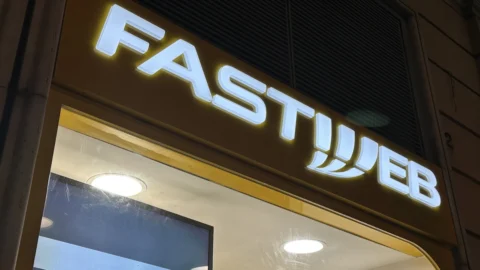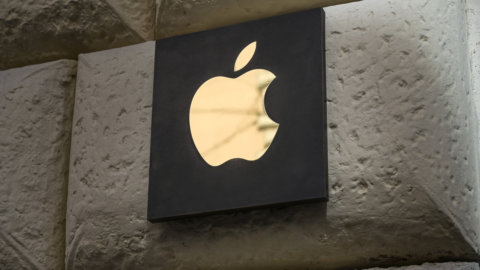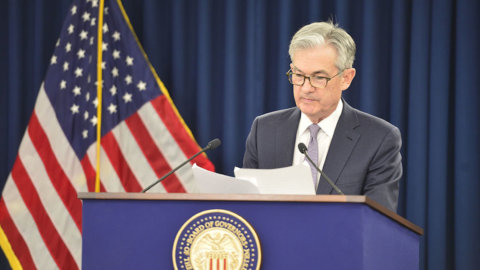Commodities, energy, but also banks are suffering. The selling on European markets that started in the morning was accentuated in the afternoon with the negative start of Wall Street, which reacts to the new sell-off on oil. The Ftse Mib thus closed down by 2,35%, the worst European Stock Exchange sunk by banks, oil and the Fiat galaxy. London loses 1,88%, Frankfurt 1,15%, Paris 1,94%.
The Treasury recorded rates at new historic lows and strong demand for the three-year BTP issue in the auction today placed for 2 billion euro at a yield of 0,11% (from 0,25% in the previous auction) with requests to 1,9 times from 1,53. The other maturities of the 7-year Btp placed for 2,5 billion euros at 0,98%, of the Btp maturing in 2039 for 553 million at 2,64% and of the Btp 2040 for 447 million at 2,71% also performed well. The Btp-Bund spread closed down by 100 basis points with a yield of 1,61%.
RISK OF SECULAR STAGNATION
NERVOUSNESS ABOUT THE FED
“The weakness of commodities (oil at its lowest since August, copper at cyclical lows), apart from further damaging some emerging markets, in the most classic of vicious circles, is transferred to equity via related sectors (energy, materials), as well as depressing growth expectations”, commented Giuseppe Sersale, Strategist of Anthilia Capital Partners Sgr, explaining that the themes of the last few hours seem to recall some dynamics observed this summer, even if there are positive aspects which lead me to think that “at the moment there is really a lack of prerequisites for expecting a correction of that magnitude”.
The attention of the markets is therefore once again on the moves of the Fed: the recent increase in the probability of a rise in US rates has gradually put pressure on emerging markets, and once again depressed commodities. Chinese data that is "struggling to take flight", such as yesterday's industrial production and fixed investment, and today's October credit aggregates, do not help.
On the front of the American central bank today there were several interventions and nervousness is increasing. James Bullard, president of the St.Louis Fed, said he fears that developed countries are about to enter an area of permanently low rates and inflation. The chairman of the Chicago Federal Reserve said he wants "a later rate hike and a more gradual normalization."
Finally, Janet Yellen herself gave no further guidance on monetary policy but stated that "the global financial crisis has altered the way monetary policy is thought". Meanwhile, today's new weekly jobless claims remained at 276.000 against expectations for 270.000, still close to a 15-year low as oil inventories rose by 4,224 million barrels.
DRAGONS, READY TO ACT
IMF, GROWTH COULD DERAIL
The president of the ECB, Mario Draghi, also spoke today in a speech to the EU Commission in Brussels: "The latest data - he said - confirm that the economic recovery in the euro area is progressing moderately", demonstrating that activity has "some degree” of reaction to external influences that tend to weaken demand. But “the downside risks are clearly visible”. Draghi reiterated that "if we conclude that our medium-term price stability objective is at risk, we will act using all available tools".
In the note "Global Prospects and Policy Challenges" prepared by the staff of the institute in view of the G20 in Antalya, the International Monetary Fund notes that global growth in 2015 remains "modest and unbalanced" and is going through a moment of transition, characterized by the divergence of monetary policy of the central banks of advanced economies, the rebalancing of growth in China and the end of the commodity market super cycle. Global activity "should accelerate in 2016, thanks to the recovery of advanced economies and the revitalization of emerging ones". However, growth remains fragile and could be derailed if the transition is not managed correctly.
SALES ON EXOR AND UNICREDIT
YOOX AND TOD'S SHINE
In Piazza Affari, sales hit Exor (-6,54%) after the placement of treasury shares for 4,87% of the capital. In the galaxy, Fiat Cnh Industrial yields 4,02% and FCA 3,06%. However, the second worst title is Unicredit (-5,49%) in the aftermath of the publication of the quarterly accounts and the new industrial plan which provides for 18.200 redundancies in Europe. Among the financials, Unipol is also losing ground among the worst of the Ftse Mib (-4,12%). Saipem also down (-4,5%).
On the other hand, Yoox stands out, gaining 2,93%, after an intraday jump of over 4%, reaching its highest level since January 2014 after the release of the nine-month accounts and the upward revision of synergies to 2018, estimated at 85 million (from previous 60) to Ebitda level. Second best stock on the Ftse MIb is Tod's which rises by 1,83% after the accounts. Only four blue chips close in positive ground. The other two are A2A (+0,5%) and Prysmian (+0,21%).





